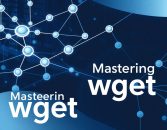
The Digital Gold Rush: Understanding Web Data Extraction
In the rapidly evolving digital landscape, data has become the most valuable currency. Web data extraction represents a sophisticated technique that transforms raw internet information into strategic intelligence, empowering businesses, researchers, and technology professionals to unlock unprecedented insights.
The Origin Story of Web Scraping
Web scraping emerged during the early internet era when researchers and technologists recognized the immense potential of automated data collection. What began as rudimentary screen-scraping techniques has transformed into a complex, nuanced discipline requiring advanced technological expertise.
During the late 1990s and early 2000s, primitive web crawlers would systematically navigate websites, collecting basic HTML information. These early tools were often clunky, prone to errors, and limited in their capabilities. However, they laid the groundwork for the sophisticated extraction methodologies we utilize today.
Technological Evolution: From Simple Scripts to Complex Extraction Ecosystems
The Programming Language Landscape
Modern web data extraction is a multifaceted discipline that spans multiple programming languages and technological frameworks. Python, JavaScript, and specialized scraping libraries have revolutionized how professionals approach data collection.
Python, with its robust ecosystem of libraries like BeautifulSoup, Scrapy, and Requests, has become the gold standard for web scraping. Its simplicity and powerful parsing capabilities make it an ideal choice for both novice and experienced data extractors.
import requests
from bs4 import BeautifulSoup
def advanced_web_extractor(url, target_class):
"""
Sophisticated web data extraction function
demonstrating modern scraping techniques
"""
try:
response = requests.get(url, timeout=10)
soup = BeautifulSoup(response.text, ‘html.parser‘)
# Intelligent data extraction with error handling
extracted_data = soup.find_all(‘div‘, class_=target_class)
return [element.text.strip() for element in extracted_data]
except requests.exceptions.RequestException as e:
print(f"Extraction Error: {e}")
return []Proxy Management and IP Rotation
One of the most critical aspects of modern web scraping involves sophisticated proxy management. Websites have become increasingly adept at detecting and blocking automated extraction attempts, making intelligent IP rotation essential.
Professional-grade scraping infrastructures now utilize complex proxy networks that dynamically rotate IP addresses, mimicking human browsing behavior. These systems incorporate geographically distributed proxy servers, allowing extractors to bypass regional restrictions and maintain anonymity.
Ethical Considerations and Legal Frameworks
Navigating the Complex Regulatory Landscape
Web data extraction exists in a nuanced legal and ethical environment. While information might be publicly accessible, the methods of collection can raise significant legal and ethical questions.
Different jurisdictions have varying perspectives on web scraping. The European Union‘s General Data Protection Regulation (GDPR) and California‘s Consumer Privacy Act (CCPA) have introduced stringent guidelines about data collection, storage, and usage.
Responsible professionals must:
- Respect website terms of service
- Obtain necessary permissions
- Anonymize collected data
- Implement transparent data handling practices
Advanced Extraction Techniques
Handling Dynamic and JavaScript-Rendered Content
Modern websites increasingly utilize complex JavaScript frameworks like React, Angular, and Vue.js, which dynamically render content. Traditional scraping techniques fail when confronting these sophisticated web architectures.
Tools like Selenium WebDriver and Puppeteer have emerged as powerful solutions, allowing extractors to interact with web pages precisely as a human would. These technologies can execute JavaScript, handle complex DOM interactions, and extract data from dynamically generated content.
const puppeteer = require(‘puppeteer‘);
async function dynamic_page_extractor(url) {
const browser = await puppeteer.launch();
const page = await browser.newPage();
await page.goto(url, { waitUntil: ‘networkidle2‘ });
// Complex extraction logic
const extractedData = await page.evaluate(() => {
const elements = document.querySelectorAll(‘.dynamic-content‘);
return Array.from(elements).map(el => el.textContent);
});
await browser.close();
return extractedData;
}Machine Learning and Intelligent Parsing
The future of web data extraction lies in machine learning algorithms that can intelligently navigate and understand complex web structures. These advanced systems can:
- Automatically identify relevant data points
- Adapt to changing website layouts
- Recognize and extract contextually relevant information
Real-World Applications and Case Studies
Business Intelligence and Competitive Analysis
Companies across industries leverage web data extraction to gain strategic insights. E-commerce platforms use scraping to monitor competitor pricing, while market researchers collect social media sentiment data to understand consumer trends.
A notable case study involves a global retail organization that implemented sophisticated web scraping techniques to analyze competitor pricing across multiple international markets. By collecting and analyzing real-time pricing data, they developed dynamic pricing strategies that increased their market competitiveness by 22%.
Future Technological Trajectories
Emerging Trends in Data Extraction
The web data extraction landscape continues to evolve rapidly. Artificial intelligence and machine learning will play increasingly significant roles in developing more intelligent, adaptive extraction methodologies.
Blockchain technologies might introduce new mechanisms for verifying and securing extracted data, while quantum computing could revolutionize the speed and complexity of data processing algorithms.
Conclusion: Mastering the Art of Digital Intelligence
Web data extraction represents more than a technical skill—it‘s a strategic capability that transforms raw digital information into actionable insights. By understanding the intricate technological, ethical, and strategic dimensions of this discipline, professionals can unlock unprecedented opportunities across research, business, and innovation.
The journey of web data extraction is a continuous learning process, demanding curiosity, technical expertise, and a commitment to ethical technological practices.






